“Writers from the Peace Corps” by John Coyne (Ethiopia)

John Coyne (Ethiopia 1962–64)
Since 1961, Peace Corps writers have used their volunteer service as source material for their fiction and nonfiction. Approximately 250,000 Americans have served in the Peace Corps. Of these volunteers and staff, more than 1,500 have published memoirs, novels, and poetry inspired by their experience. Many former volunteers have gone on to careers as creative writing teachers, journalists, and editors, while others have discovered a variety of jobs outside of publishing where their Peace Corps years have contributed to successful employment. A Peace Corps tour has proven to be a valuable experience — in terms of one’s craft and one’s professional career—for more than one college graduate.
The first to write
Two years later, in 1967, Simon & Schuster published An African Season, by Leonard Levitt (Tanzania 1963-65), another journalist. This memoir covers Levitt’s first year (1964) of living and teaching in a rural upper-primary school in Tanzania.
In 1969, Moritz Thomsen (Ecuador 1965-67) published what is considered by many to Living Poorbe the classic Peace Corps memoir: Living Poor: A Peace Corps Chronicle.
Why the Peace Corps?
Volunteers do not just pass through foreign countries as tourists. They unpack; they settle down; they do a job; and they are profoundly influenced by life in developing countries. Having lived and worked at the edges of the earth, their service provides them with raw material waiting to be shaped into prose.

Mary-Ann Tirone Smith (Cameroon. 1965-67)
Novelist Mary-Ann Tirone Smith (Cameroon 1965-67) tells of taking a writing course in 1980 from New Yorker staff writer Paul Brodeur, and upon learning that she had been a Peace Corps Volunteer, he remarked, “Writers need real estate to create great fiction. Two years in Cameroon with the Peace Corps? You’ve got that covered.” Mary-Ann went on to write Lament For A Silver-Eyed Woman, the first Peace Corps novel written and published by a former volunteer. It came out in 1987.
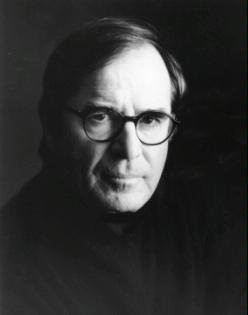
Paul Theroux (Malawi 1963–65)
Paul Theroux, a Peace Corps Volunteer in (Malawi 1963-64) , recounts in his collection of travel pieces, Sunrise With Seamonsters, how he began to write while in the Peace Corps:
“I remember a particular day in Mozambique, in a terrible little country town, getting a haircut from a Portuguese barber. He had come to the African bush from rural Portugal to be a barber. …This barber
did not speak English, I did not speak Portuguese, yet when I addressed his African servant in Chinyanja, his own language, the Portuguese man said in Portuguese, ‘Ask the bwana what his Africans are like.’ And that was how we held a conversation – the barber spoke Portuguese to the African, who translated it into Chinyanja for me; and I replied in Chinyanja, which the African kept translating into Portuguese for the barber. The barber kept saying – and the African kept translating – things like, ‘I can’t stand the blacks – they’re so stupid and bad-tempered. But there’s no work for me in Portugal.’ It was grotesque, it was outrageous. It was the shabbiest, darkest kind of imperialism. I could not believe my good luck,” Theroux wrote. “In many parts of Africa in the early 1960s it was the nineteenth century, and I was filled with the urgency to write about it.”
Theroux is not the only Peace Corps writer to experience such an epiphany moment.
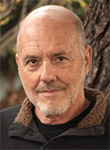
Richard Wiley (Korea 1967-69)
Richard Wiley , who was the Director of Creative Writing at the University of Nevada, Las Vegas, and Associate Director of the Black Mountain Institute, explains his time in Korea this way:
“The experience taught me that there are many beautiful and varied worlds on our small planet, and infused my seven published novels with an integrity and depth that I would never have been able to supply them with had I stayed the American kid I was before the Peace Corps called me.”

Peter Hessler (China 1996–98)
Former volunteer in (China 1996-98) and MacArthur award winner, Peter Hessler, joined the Peace Corps after his years at Oxford as a Rhodes Scholar.
“It was a difficult step,” he recalls now to me an email from Cairo, Egypt where he was living and writing for the New Yorker.
“I’ll never forget sitting at my computer and describing Fuling, the city where I was teaching, and my life in that city, and realizing that my writing voice had changed dramatically. It suddenly felt so much more assured. I had also gained an enormous amount of knowledge about my city and its residents, as well as affection, and these things seemed to come out effortlessly in my writing.”
Peace Corps Service on Your Resume
Leaving school and seeking a career in this current job market is difficult. But instead of making the rent money by working in a job unrelated to your skills, a college graduate or MFA can add to his or her résumé with two years of employment as a teacher in the Peace Corps.
Ask any volunteer what they got out of the Peace Corps, and they will reply, “I learned more than I taught.” Former Senator from Pennsylvania and former Associate Peace Corps, and Peace Corps Director in Ethiopia, Harris Wofford, called the Peace Corps a “university in dispersion.”
Peace Corps Volunteers (PCVs) are often “tossed” into a new job with a minimum of preparation and the “on the job training” that occurs, whether it is to step up in front of the class or addressing the village elders. These skills will last a lifetime.
PCVs learn very early that they have the ability. As Volunteers in new situations, they learn how to solve problems, organize communities, and gather and impart knowledge. The Peace Corps demands a lot from their Volunteers, but in the sixty-plus years of the agency, the Peace Corps has learned that volunteers, given new responsibilities, rise to the tasks.
All of these hard-earned skills learned overseas, whether it is a new language or an understanding of a new culture and country, transfer directly to one’s future career. A Peace Corps tour jumps a person forward in the employment line with skills another candidate, who has never left home, doesn’t have.
While some might consider being a volunteer “time out” from the world of work, nothing could be farther from the truth. It is not for nothing that the slogan of the Peace Corps is “The toughest job you’ll ever love.” Yes, tough. And yes, a job.
Teaching & Writing
Hundreds of Returned Peace Corps Volunteers (RPCVs) have found ways to write their books and have a teaching career. Melanie Sumner (Senegal 1988-90) finished her tour and went on to publish three novels — The School of Beauty and Charm, The Ghost of Milagro Creek, and How to Write a Novel (A Novel) She has also taught at Kennesaw State University in Georgia.
 Tony D’Souza (Cote d’Ivoire 2000-02) wrote the novel Whiteman, based on his years in Africa, and later he published Mule, which was optioned for the movies.
Tony D’Souza (Cote d’Ivoire 2000-02) wrote the novel Whiteman, based on his years in Africa, and later he published Mule, which was optioned for the movies.
Charles Larson (Nigeria 1962-64) taught at American University in Washington, D.C. while also writing half-a-dozen books of fiction and nonfiction.
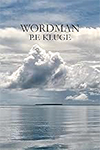
Wordman
P.F. Kluge (Micronesia 1967-69), taught creative writing at Kenyon College. He was also a journalist for The Wall Street Journal, wrote travel articles for National Geographic Traveler, wrote 5 novels and a number of other books including his latest Wordman.

Bonnie Black (Gabon 1996-98)
Bonnie Black (Gabon 1996-98) earned an MFA in Creative Writing from Antioch in 2007 after returning home from being a PCV in West Africa. She then taught at the University of New Mexico in Taos. In 2010, she was named “Most Inspirational Instructor” at the university.
 Anne Panning (Philippines 1988-90) taught fiction and nonfiction at the State University of New York at Brockport and has won various awards for her teaching and writing, including the 2006 Chancellor’s Award for Teaching, and the 2007 Flannery O’Connor Award for her collection, Super America: Stories. Anne was a PCV in the Philippines.
Anne Panning (Philippines 1988-90) taught fiction and nonfiction at the State University of New York at Brockport and has won various awards for her teaching and writing, including the 2006 Chancellor’s Award for Teaching, and the 2007 Flannery O’Connor Award for her collection, Super America: Stories. Anne was a PCV in the Philippines.
Joanna Luloff (Sri Lanka 1996-98), an assistant professor of English and Communications at SUNY Potsdam, wrote her first collection of stories, The Beaches at Galle Road, Stories from Sri Lanka, based on her two years in Sri Lanka. The stories were published by Algonquin Books in 2012.
Mark Brazaitis (Guatemala 1991-93), Director of the MFA Creative Writing program at West Virginia University, wrote articles and reviews for The Washington Post before becoming a Volunteer. Today, he says,
“I learned to become a writer in the Peace Corps. I knew that I wanted to explain what I was seeing and doing in Guatemala to people who would never visit the country. I therefore had to be precise, vivid, and accurate in how I portrayed the town where I was living and the people in it.”
His first book, The River of Lost Voices: Stories from Guatemala, won the Iowa Short Fiction Award in 1998.
“The Peace Corps gave me my writing life,” says Brazaitis. “As a former Volunteer with an MFA, and a published author, I was in a position to secure a teaching job at the university level.”
Other Volunteer writers have followed similar career paths.
Mike Meyer (China 1995-97), author of The Last Days of Old Beijing and In Manchuria: A Village Called Wasteland and the Transformation of Rural China went onto teach nonfiction writing at the University of Pittsburgh. He wrote me about his time overseas:
“My Peace Corps experience taught me to write for an audience. In particular, for a far-away audience who likely had never been to the places or met the people and culture I was describing. It made me shift my focus away from myself and to the person reading my words.”

Ann Neelon (Senegal 1978-79)
Poet Ann Neelon (Senegal 1978-79), a professor of English and director of the MFA Program in Creative Writing at Murray State University, recalls how she got her first teaching job after Senegal.
“I applied for a lucrative one-week stint to conduct poetry workshops in a transition house for the mentally ill. My students—who had themselves helped to vet the applicants — later informed me that my Peace Corps background had gotten me the job. ‘We thought that if you could handle the Peace Corps, you could handle us,’ they told me. And they were right.”
Careers in Publishing & Beyond

Beatrice Hogan (Uzbekistan 1992-94)
Peace Corps Volunteers have also found their way successfully into other publishing positions. Beatrice Hogan (Uzbekistan 1992-94) became the research chief for the national women’s lifestyle magazine, MORE. She sums up the benefits of having been in the Peace Corps this way:
“I have never had a job interview where I haven’t been asked about my Peace Corps service. The Peace Corps is such a huge grab bag. You can pull a story out to illustrate just about any job qualification, from working well with others, to flexibility, to finding innovative solutions. You name it! I was an English major in college,” and I was always interested in publishing and writing, and the Peace Corps experience has made me a more culturally sensitive reader and editor. At editorial meetings now, I have brought up issues that might not occur to other editors.”
Barry Hillenbrand (Ethiopia 1963-65), a former bureau chief in Tokyo for TIME, agrees.
“The skills you learn as a PCV help a person as a journalist especially when working as a foreign correspondent, as I did for twenty-five years. I learned from my Peace Corps work that it was important to understand local cultures, that people had different thought processes, that languages were critical, that eating and drinking local has its merits. So when a very proud and important Saudi asked if I had ever drunk camel’s milk and would I like some from that camel over there, I replied, ‘of course, I’ll give it a try.’ Once you’ve done two years in the Peace Corps, you can live anywhere, adjust to anything, and drink anything. By the way, camel’s milk turns out to be delicious.”
Even the smallest event in the Peace Corps can bear future fruit. One example is Andy Martin (Ethiopia 1965-68) who, in his long career, worked for Oxford Press, Scholastic, Cambridge University Press, and McGraw Hill. He recalls how it all began for him.
“It happened at a small news kiosk in Khartoum, Sudan. I spotted a publication the likes of which I had never seen. It was a black and white photo novella in Spanish. A photonovella is designed and laid out just like a comic book, in panels. What struck me was how easy it was to follow the story by looking at the pictures, even though I didn’t know Spanish.
“After the Peace Corps, working with a photographer, I wrote and published three such ESL photonovellas for Longman. It was my introduction to publishing which became my career. Had I not been trained as an ESL teacher by the Peace Corps, I never would have pursued an ESL teaching career and gotten my M.Ed. from Teachers College. It’s all one big connection, beginning with the Peace Corps.”
Deferring College Loans
The Peace Corps also creates a wonderful opportunity for ‘time out’ after college and graduate school for students carrying college debt. “The Peace Corps provided me loan deferrals,” says Beatrice Hogan, “and for me that was a huge selling point. It took the pressure off of finding a paying job immediately after school.”
More than one person has also found that time away from America, living and working in another country, allows a Peace Corps Volunteer an opportunity to read the books that they never got around to reading in college.
Mike Meyer (China 1995-97), for one, remembers those days fondly, “I had a lot of downtime at my site, and in addition to learning Chinese, I read all of Shakespeare and shelves of classic literature.”
Future Government Service
Two years in the Peace Corps also counts as federal service and is a benefit if one continues in the federal government. It is two years added to government retirement pension. Also, many states add Peace Corps teaching experience in their elementary and high school certification.
Who Are Peace Corps Writers?
I have not named in this article all of the “Peace Corps Writers”…. but who could? We have at least 539 RPCVs and Staff who have written two books or more. I know we do not have all the names of all our Peace Corps authors. We keep trying to find out who they all are and list their books.
One final observation about Peace Corps Writers.
Expatriates & Exiles
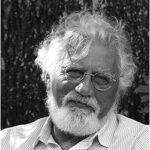
Bob Shacochis (Eastern Caribbean 1975-76)
Bob Shacochis (Eastern Caribbean 1975-76) characterizes Peace Corps writers as “torchbearers of a vital tradition, that of shedding light in the mythical heart of darkness.” He sees PCV writers as “descendants of Joseph Conrad, Mark Twain, George Orwell, Graham Greene, Somerset Maugham, Ernest Hemingway, and scores of other men and women, expatriates and travel writers and wanderers.”
Peace Corps writers are, at least for a while, expatriates and exiles from their culture, and from that experience they gain a new perspective on the world.
The late novelist Roberta Worrick (Ethiopia 1971-73) whose pen-name is Maria Thomas said of her time in Ethiopia, “it was a great period of discovery. There was the discovery of an ancient world, an ancient culture, in which culture is so deep in people that it becomes a richness.”
Novelist and short story writer Eileen Drew (Zaire 1979-81) makes the point that writers with Peace Corps experience “bring the outsider’s perspective, which we’ve learned overseas, to bear on our writing once we have returned to America.”
Peace Corps writers have an understanding of other societies that very few Americans will ever know. In their writings, they are telling stories of cultures with compassion and insight. And in doing so, by telling tales of faraway lands, of cultures and societies, they are educating Americans about the world. After the initial culture shock all PCVs experience, there is a richness of experience that talented PCVs turn into memorial prose.
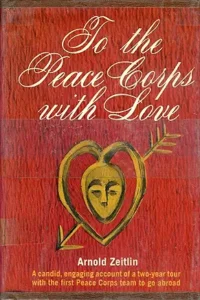


What a wonderful piece, John. Thanks!
Nice synopsis of important points of Peace Corps experiences throughout the past 63 years. Thanks for all you’ve done to highlight us Peace Corps writers,
Way to go John. This sketch of PCVs’ and RPCVs’ experiences is a fine sampling of not only how the participants contribute to others’ growth but also how the experience can be vital to your own personal growth.
Once again, thank you for sharing the light of many torches.
John,
What a tour de force you’ve provided us! Given that only 250,000 Volunteers have served since 1961, their literary output must prove that there was something in the water when we Volunteers took that oath, and we had then to share that experience with the American people.
Thank you.
Thank you John. RPCVs were and PCVs are witnesses to and part of a world that will never be again. That is reason enough to each of us to report or experiences and the nobility of the people we worked, lived and played with.
Excellent piece John. I’m curious if Bonnie Black’s MFA in Writing was earned at Antioch in Ohio or in L.A. I created (and directed) the MFA in Professional Writing for Antioch Los Angeles in 1976( 5 years after my PCV service in Ghana), and the program still exists. But I rarely hear who made good use of their degree, so thought I’d see if you knew. Also, something to mention: Whenever I go to an event where they ask if you are a veteran, and if you have served in the military, you get various discounts. I always ask if that also applies to those who served in the Peace Corps. It never does. Just this week, I spoke to a person who works for the Neptune Society. They give a discount to veterans. She said she’d look into considering Peace Corps service as worthy of the same discount. And she called to let me know, it’s now included. So for RPCVs who are thinking of going out with fire, you can now tout your service.
I believe she got her degree in LA, Larry
Great article. Thanks for putting so much effort, time and talent into not only this site, but the piece as well. It is easy to lose sight of the past when so absorbed in the day to day travails of the present. This post awakened that part of me. Thank you.
John,
I join with Jerry Norris in thanking you for keeping us tied together through Peace Corps Authors. I haven’t gotten to mine yet, but it is coming …
Best,
G.
Definitely enjoyed this article. Would like to suggest another writer Mark Sullivan whose newest book is All the Glimmering Stars. Mark was in Peace Corps in Niger, and his books reflect his compassion for the enduring power and compassion of the human spirit.
https://marksullivanbooks.com/
Thanks, Kay
I know of Mark Sullivan (Niger 1980-82) and he is listed with my lengthy list (over 500 ) RPCVs who have written two books or more. Thanks for the ‘heads up’. John
This is an amazing article, John. I always love reading about PC writers and book and am so grateful to you for filling my life with this kind of information and inspiration. I laughed out loud at Paul Theroux’s story. You’re so right that he’s not the only one to have experienced such a moment.
Leita Kaldi Davis
President, RPCV Gulf Coast FL